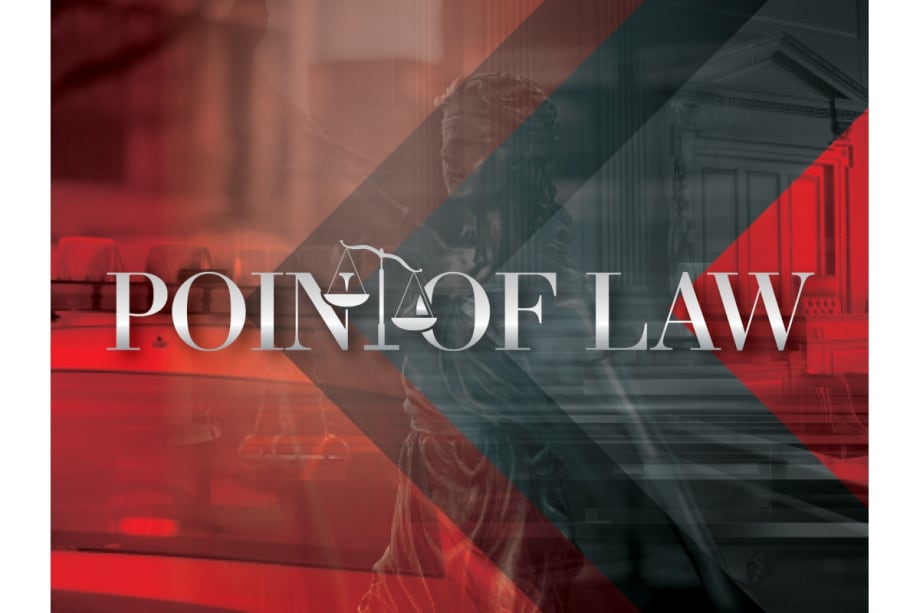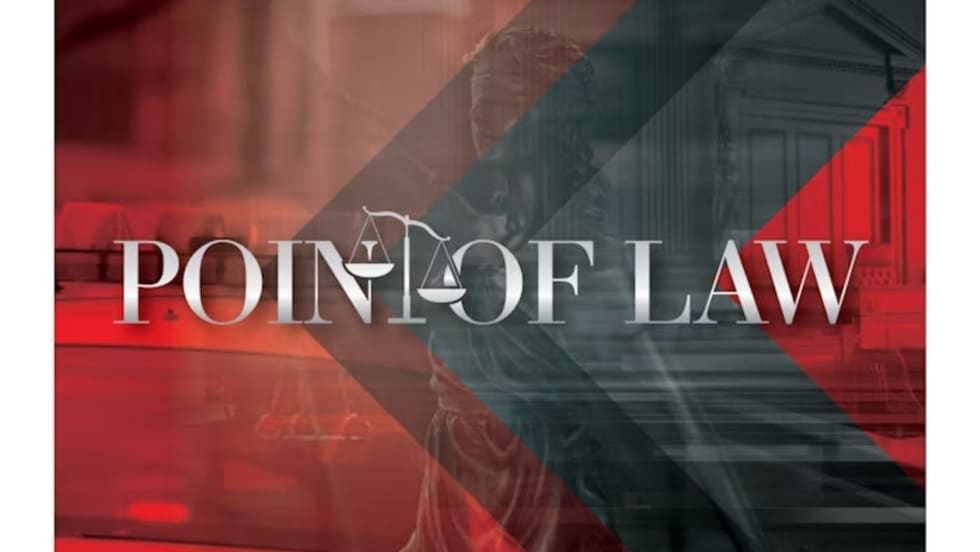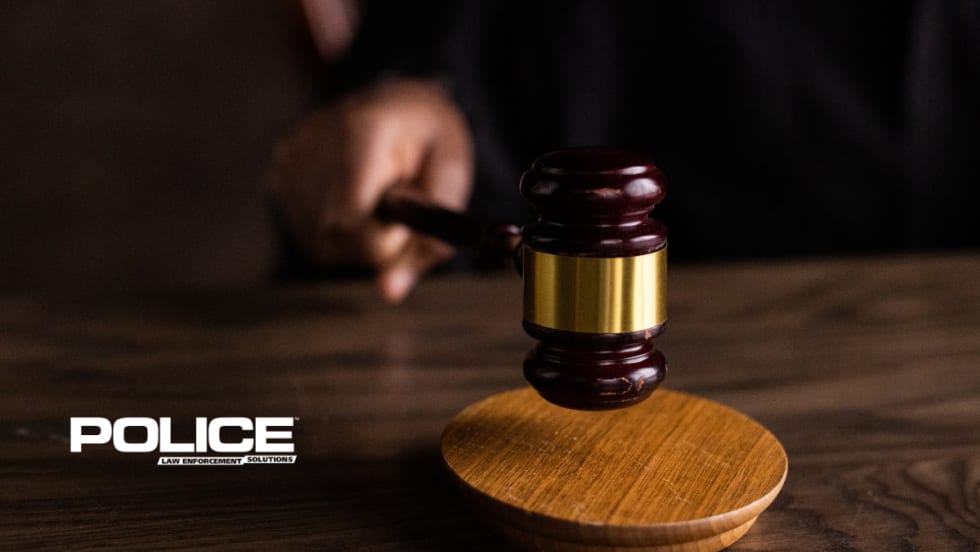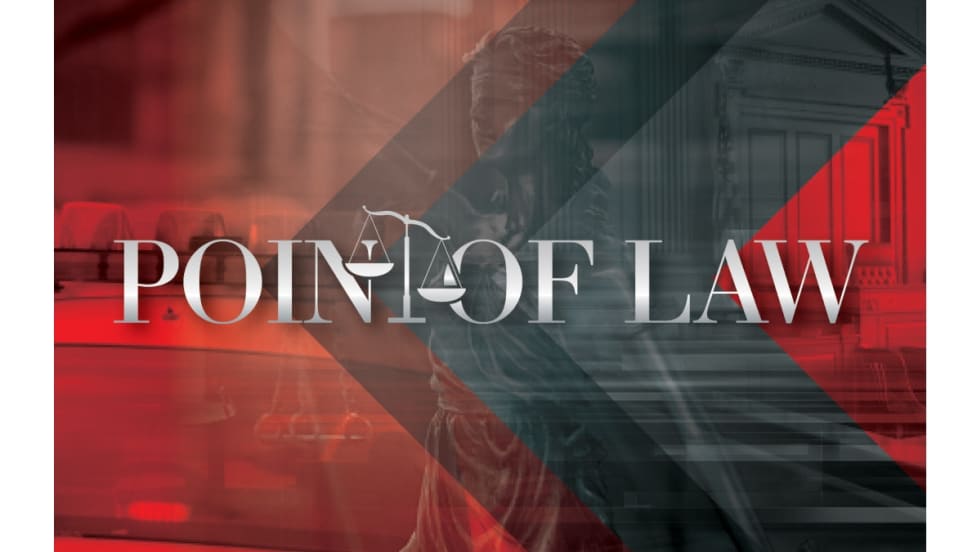The Ninth Circuit Court of Appeals recently rendered a decision in the case of United States v. Ramirez, exploring the limits of the Fourth Amendment’s protections against unreasonable searches and seizures. In this case, the focus narrows in on a traffic stop scenario where an officer approached the vehicle and initiated the encounter by asking the driver, “What’s up, my man? You on probation or parole?”
Point of Law: Traffic Stops and Tough Questions
Can officers ask about parole status during a stop without violating the Fourth Amendment?

POLICE
Started as a Routine Traffic Stop
In July 2020, what started as a routine traffic stop quickly escalated into a showdown over Fourth Amendment rights when Victor Ramirez was pulled over by two police officers while driving through a residential neighborhood. Officer Dorin Buchanan and Officer Patrick Marshal, on routine patrol, noticed Ramirez committing a series of traffic violations: speeding over the limit, running a stop sign, and failing to signal a turn. Before the officers pulled Ramirez over, one of them recognized the driver as a known gang member from an earlier run-in, a fact that added a layer of complexity to the stop from the outset.
With this prior knowledge, Officer Buchanan approached the vehicle and immediately asked, “What’s up, my man? You on probation or parole?” This casual but critical inquiry set the tone for what would unfold in the case. Ramirez confirmed he was on parole for a firearm-related offense, a response that opened the door to more extensive questioning that went beyond the initial traffic violations. Officer Buchanan probed Ramirez about his last parole check-in, his residence, whose car he was driving, and his reasons for being in the neighborhood. While questioning Ramirez, the officer noticed that he had several gang-related tattoos, which led him to question why Ramirez was in an area populated by rival gang factions.
The officer directed Ramirez to turn off the car and asked about his driver’s license, which he admitted to not having on him. Next, he had Ramirez position his right hand on the back of his head and use his left to unbuckle his seatbelt. It was at this point that Officer Buchanan asked Ramirez if he had a “strap” on him. Ramirez responded, “To be honest with you, I do.” Officer Buchanan replied, “It is what it is. A man like you is not going to drive through that neighborhood without a strap, you feel me?” Ramirez then told the officer that the gun was in the glove compartment of the car. After he stepped out of the vehicle, the officers retrieved a loaded 9mm semiautomatic pistol from the car.
After a grand jury indicted Ramirez for possessing a firearm and ammunition as a felon, he moved to suppress the evidence, arguing that the officers unreasonably prolonged the stop by “engaging in a fishing expedition for hypothetical criminal activity rather than addressing the purported reason for the traffic stop.”
The district court sided with law enforcement, denying Ramirez’s motion to suppress the firearm found during the stop, and sentenced Ramirez to 63 months in prison. Ramirez appealed to the Ninth Circuit.
The Case Goes to Appeal
Ensuring safety during a traffic stop is critical because a traffic stop is one of the most common yet potentially dangerous tasks we perform. And as any officer who has worked traffic knows, most of the inherent risks associated with a stop might not be immediately apparent.
We also know that besides investigating the traffic violation that warranted the stop, a police officer can also make “ordinary inquiries incident to the traffic stop” and “attend to related safety concerns.” The Supreme Court has clarified that “ordinary inquiries incident to the traffic stop” can include checking a driver’s license, determining if there are any outstanding warrants, asking for vehicle registration, and for proof of insurance. Additionally, we can take necessary precautions that impose minimal burdens on the individual for the sake of safety, like asking drivers to exit their vehicles.
The Ninth Circuit has previously held that an officer may extend a traffic stop to conduct a criminal history check because it is a negligibly burdensome precaution required for officer safety. An officer may not, however, extend a traffic stop to run an “ex-felon registration check” because this check “in no way advances officer safety.” Similarly, this Court has held that while an officer may not extend a traffic stop to demand identification from a passenger where “knowing the passenger’s name would not make the officers any safer,” an officer may extend a traffic stop to ask about weapons.
When the case made its way to the Ninth Circuit, the question for the Court was simple: “Can a police officer during a traffic stop ask someone if he is on parole?” The United States Court of Appeals for the Ninth Circuit affirmed the district court’s denial of Ramirez’s motion to suppress the loaded gun found during the traffic stop. The court held that asking about parole status during a traffic stop does not violate the Fourth Amendment.
On appeal, Ramirez argued that Officer Buchanan’s question regarding his status as a parolee infringed on the Fourth Amendment because it gives the police license to search a parolee—who typically agrees to future searches as a condition of his release—for general criminal activity unrelated to the traffic stop.
The Ninth Circuit Appeals Court Ruling
Unpersuaded by this argument, the Ninth Circuit disagreed and held that an officer may ask about parole status because it reasonably relates to the officer’s safety and imposes a negligible burden.
The Court explained that in assessing potential risks involved in a traffic stop, it is useful for a police officer to know if the person remains on parole because a parolee has committed a crime serious enough to have merited prison time. To be sure, a parolee may not necessarily be more dangerous than a non-parolee. But all else being equal, the Court determined that it is reasonable for a police officer to consider taking additional precautions when dealing with someone who served prison time.
Here, the Court found that Officer Buchanan’s encounter with Ramirez underscores the potential dangers during a traffic stop. Faced with a parolee (who, it turned out, had a loaded gun in the car), Officer Buchanan took precautions in dealing with Ramirez (by asking him not to reach for his driver’s license and directing him to put his right hand behind his back when unbuckling his seatbelt). The Court determined that asking someone about their parole status is substantially similar to running a criminal history check during a traffic stop—a practice that this Circuit has found to pass muster under the Fourth Amendment.
Citing precedent from a 2022 case out of the Ninth Circuit, the Court concluded that asking whether someone recently served prison time—like running a criminal background check—reasonably relates to officer safety. Next, the Court addressed Ramirez’s challenge of the motive behind Officer Buchanan’s question about his parole status, suggesting it was a pretext to justify a search. However, the court emphasized that ensuring officer safety is still a valid reason for asking about parole status. Citing Graham v. Connor, the court explained that here, it was deemed objectively reasonable for Officer Buchanan to ask about parole status for safety reasons.
United States v. Ramirez reinforces essential guidelines for conducting traffic stops within legal bounds. Officers are reminded that questions about a driver’s parole status are permissible under the Fourth Amendment, particularly when they relate to assessing safety risks.
Eric Daigle is founder of Daigle Law Group, LLC, a firm that specializes in law enforcement operations. A former Connecticut State Police officer, Daigle focuses on civil rights actions, including police misconduct litigation. He is a legal advisor for police agencies across the country and a member of the POLICE Advisory Board.
Read More: 10 Tips for Felony/High-Risk Traffic Stops
More Point of Law

Point of Law: The Limits of Electronic Searches
Can an individual be prosecuted for despicable criminal conduct based on evidence obtained in violation of the United States Constitution? Ultimately, the Ninth Circuit judges wrote, “In the circumstances of this case (United States v. Holcomb, 23-469 (9th Cir. 2025)), respect for the Constitution and the rule of law requires an answer of “no.”
Read More →
Trump Issues Order Cutting Federal Funding in Cashless Bail Jurisdictions
<strong>“</strong>Cashless bail policies allow dangerous individuals to immediately return to the streets and further endanger law-abiding, hard-working Americans because they know our laws will not be enforced,” the administration said.
Read More →
Justice Department Sues Los Angeles Over Sanctuary Policies
The DOJ said in a press release that the “sanctuary city” policies of the City of Los Angeles are illegal under federal law.
Read More →
Understanding Officer-Created Jeopardy
Officers can be criminally prosecuted for using force when their actions led to escalation during contact with subjects.
Read More →
Point of Law: The Limitations of Search Warrants
In the Tenth Circuit case of Cuervo v. Sorenson, the Court ruled officers cannot deviate from the language of the warrant.
Read More →
DOJ Dismisses Consent Decrees Affecting Louisville and Minneapolis Police
The Civil Rights Division will be taking all necessary steps to dismiss the Louisville and Minneapolis lawsuits with prejudice, to close the underlying investigations into the Louisville and Minneapolis police departments.
Read More →
New Michigan Bill would Give Officers Civil Immunity in Self-Defense Cases
House Bill 4404 would create a presumption of civil immunity for individuals who are cleared criminally after using force in self-defense, shifting the burden of proof onto plaintiffs.
Read More →
Seattle to Pay Police Captain $1 Million to Settle Lawsuit
Seattle police Capt. Eric Greening sued former Chief Adrian Diaz last year alleging that Diaz retaliated when Greening brought up concerns about racial and gender discrimination.
Read More →
Washington Agencies Ordered to Not Delete Critical Facebook Contents
Jim Leighty, a local activist, filed two federal lawsuits last year claiming both agencies deleted or hid critical comments he had written below multiple posts, while keeping comments that were pro-police in nature.
Read More →
Washington State Attorney General Sues Sheriff for Helping Immigration Enforcement
The lawsuit claims the Adams County Sheriff’s Office has illegally held people in custody based only on their immigration status, helped federal agents question people in custody, and given immigration officials confidential personal information.
Read More →
